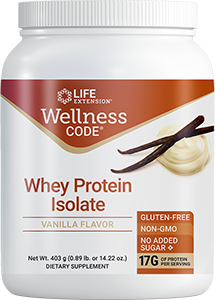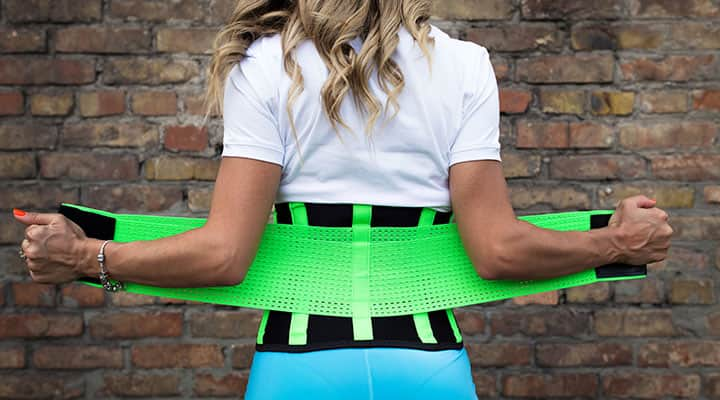
What Is Reverse Dieting?
Published: July 2021 | Updated: March 2025
We all know what it means to "go on a diet": you want to weigh less, and so you eat less. Which types of food you restrict will vary from one weight loss strategy to another—with a keto diet, for example, you strip your diet of carbs, while with other diets, you strive for fewer saturated fats. Then there's intermittent fasting, where you take in fewer calories because you don't eat at all for a long stretch of the day.
How about a diet that involves eating more, not less? This concept is called "reverse dieting," and it's been used in bodybuilding parlance for years—but, thanks to TikTok, everyday scale watchers are beginning to take notice.
Precisely because it's got a reputation for helping habitual dieters (finally!) maintain their goal weights, reverse dieting seems like a ticket off that perpetual merry-go-round of weight gain and loss. In addition, some people have found ways to use this strategy of eating more to lose weight.
Does this sound too good to be true? We asked Life Extension experts Dr. Crystal Gossard, Doctor of Clinical Nutrition and certified nutrition specialist, and licensed registered dietitian Holli Ryan for the skinny on this emerging trend.
What is reverse dieting?

Reverse dieting is a strategy to increase your resting metabolic rate, so that you can maintain your weight while eating more calories. This approach has been popular for years among competitive bodybuilders, who may severely restrict calorie intake for a competition or show, then find that going back to the same diet they'd followed before they'd cut calories results in a weight gain, rather than the expected return to maintenance.
Pro tip: In the gym to burn belly fat? Consider adding an AMPK supplement to your fat-fighting strategy!
A much more gradual increase in calories—adding, say, just 50 to 100 calories a day, rather than eating what they'd eat if they weren't on a diet at all—allows these athletes to essentially hit the "save" button on their competition weight (or at least avoid eclipsing their pre-competition weight).
Who doesn't want a "save" button for their weight loss efforts? Non-athletes are trying reverse dieting in the hopes of achieving the same results. According to Dr. Gossard, however, the jury is still out on whether this plan will work for the non gym-rat set. "There is very little research, if any, on the effects of reverse dieting in non-athlete weight-reduced individuals," she explained.
How do you reverse diet?

To try the reverse diet strategy, you need to know a few facts about yourself that the average person probably might not have handy:
- How many calories you eat in a day: Not an estimate, but an actual number, which likely requires you weighing or measuring every single bite you take.
- How many calories you burn: This includes through exercise, as well your everyday and sedentary activities.
- Subtracting your burn from your intake, you can then calculate exactly how many calories you take in to maintain your current weight.
Once you've figured all of that out, you will need to add a modest number of calories a day to that number. Then, see what happens. Watch the scale for trends over the course of a few weeks. If your weight stays the same, you can add some more calories, then weigh in. Still the same weight? Try a little more. If your weight is consistently trending upwards over a few weeks, though, dial the number of calories back until you're essentially maintaining your weight on the highest caloric intake possible, given your activity level.
How many calories, specifically, should you add back? The number of 50-100 per day, as a starting point, is what's floated around most often—however, this figure gives Dr. Gossard pause. "Fifty to 100 calories may be too much," she said. "Focus on adding an additional 2-3% of your total caloric needs, so the exact calories will vary from person to person."
Is it difficult to reverse diet?

Figuring out 2-3% of your maintenance calories, of course, is only doable when you're tracking calories consistently and accurately, and not everybody does that. "Reverse dieting is actually an advanced diet method," Ryan remarked. "You have to be very in tune with what you eat on a daily basis. So, it is not a simple diet to follow."
In other words, if you thought counting calories or figuring out Weight Watchers points was too complicated, this is not the approach for you!
If you could win a trivia contest if the subject were macros, though, maybe you should give reverse dieting a try. "It could be useful for someone who is savvy and a Type A personality," Ryan conceded. "For the person who was on a very specific diet that routinely ate mostly the same things every day and calculated all of their meals, then theoretically, it can help your metabolism by slowly adding calories back in."
Explore Our Best Weight Management Supplements
What are the benefits of reverse dieting?

Reverse dieting has a number of benefits:
- Allows you to get a better understanding of the calories you need to maintain, lose or gain weight
- Offers a physical and emotional break from caloric restriction (which can get tedious) without going full off-the-wagon style
- Adds flexibility to your weight loss journey
That being said, both Ryan and Dr. Gossard pointed out that this strategy is really just going to be a "band-aid solution" for those people who are "always on and off of a diet," and it might be time to enlist the expertise of a professional. "If you have been on many diets over the years, the diets are not working. It is time to think about food differently," Ryan said.
Added Dr. Gossard: "Find a nutrition expert who will partner with you to identify the root cause of the inability to lose weight and keep it off. It could be a health issue or lack of support or accountability."
Does reverse dieting work for weight loss?
While reverse dieting is sometimes nicknamed "the diet after you diet," it may be useful for dieters who've hit a long and stubborn plateau and are struggling to get to their goal. In this situation, you would reverse diet to first maintain your weight at a higher calorie budget, and then switch back to diet mode; the pounds should then come off with more ease—theoretically, at least.
In practice, though, reverse dieting for weight loss might not be so simple. The assumption that a certain number of calories are the only determining factor when it comes to your weight is not something Ryan agrees with. "How active we are, our age, and our hormones and many other factors will play a role in our metabolism, so it is not just about the calorie counting," she explained.
Healthy alternatives to reverse dieting

If you're on the fence about reverse dieting, good news: it's far from the only strategy to get your weight where you want it to be. "If you find that you've dieted and lost the weight you intended to lose and want to reintroduce foods, but still keep it off, this might be an approach to consider," Dr. Gossard said. "A better approach is to add in physical activity to help maintain the weight."
The focus on calorie counting that goes hand-in-hand with reverse dieting isn't for everyone, either, and certainly isn't necessary to maintain a healthy weight, according to Ryan. "Focus on the nutritional content of foods, not only their calories," she advised. "Society tends to over-emphasize how many calories something has. More important questions to ask ourselves: how many grams of added sugar does something have? How many vitamins, minerals and phytonutrients does this food offer or not offer me?"
Of course, if calorie tracking—or reverse dieting, for that matter—works well for you, by all means, carry on! "I am very pro-personalization, so to me, there is not a one-size-fits all approach," Ryan said.
Like what you read?
Please subscribe to get email updates on this blog.





